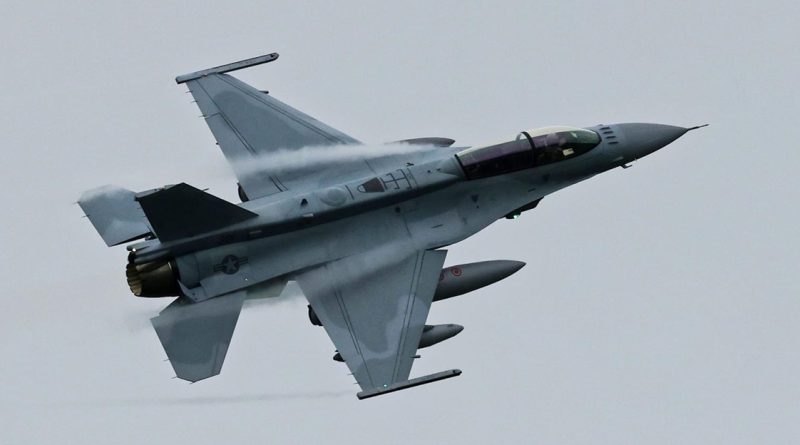Bulgaria marked a significant milestone in its defense modernization efforts as one of its newly acquired F-16 fighter jets completed its first-ever flight within Bulgarian airspace. The historic flight reflects a new era for the Bulgarian Air Force, signaling enhanced air defense capabilities and integration with NATO standards.
The F-16 Block 70, a modern variant of the U.S.-made multirole combat aircraft, took off from Graf Ignatievo Air Base under the supervision of a mixed team of Bulgarian and American military personnel. The aircraft’s maiden flight follows months of preparation, including infrastructure upgrades, pilot training, and logistical coordination between the Bulgarian Ministry of Defence and the United States.
Defense Minister Atanas Zapryanov hailed the event as a “transformative moment” for Bulgaria’s national security. “The successful operation of our first F-16 fighter in Bulgarian skies affirms our commitment to modernization, interoperability with NATO, and the long-term defense of our sovereign airspace,” he said during a press briefing following the flight.
The jet performed several routine maneuvers and standard test patterns over Bulgarian territory, with military officials confirming the flight was completed without issue. The operation is part of a broader program aimed at replacing Bulgaria’s aging fleet of Soviet-era MiG-29 aircraft, which have faced increasing operational and maintenance challenges in recent years.
Bulgaria signed a deal with the United States in 2019 to purchase eight F-16 Block 70 aircraft from Lockheed Martin, valued at approximately $1.3 billion. The acquisition includes not only the aircraft but also ground support equipment, pilot and maintenance crew training, and logistical infrastructure upgrades to host and operate the jets effectively.
The delivery of the first batch of F-16s began earlier this year, with full operational capability expected by 2027. Bulgarian pilots and technicians have been undergoing extensive training in the U.S. and at NATO facilities to ensure seamless operation and integration of the advanced platforms into Bulgaria’s air defense strategy.
The F-16 Block 70 features cutting-edge avionics, an extended lifespan, modern radar systems, and improved mission capabilities, making it one of the most advanced configurations of the fighter globally. It is widely used by NATO allies, which ensures interoperability during joint missions, drills, and defense coordination.
NATO officials welcomed the development, calling it a strategic step forward for regional security in southeastern Europe. A representative from the alliance’s Air Command emphasized that Bulgaria’s ability to independently operate advanced fighters will strengthen NATO’s collective deterrence posture in a region that continues to face complex security dynamics, particularly given recent tensions in the Black Sea.
The Bulgarian public and media have followed the acquisition closely, given its size and cost. While some opposition politicians have criticized the expense during a period of economic strain, military analysts argue that the investment is critical to ensure that Bulgaria fulfills its obligations as a NATO member and protects its national airspace from emerging threats.
Beyond military implications, the F-16 program is expected to stimulate domestic aerospace capabilities through technology transfers, personnel training, and infrastructure development. Graf Ignatievo and other air bases have undergone significant upgrades, and local contractors have been involved in support operations.
As the Bulgarian Air Force continues to transition to modern systems, further flights and operational drills with the F-16s are scheduled in the coming months. Officials are confident that the fleet will soon achieve full mission readiness, enabling Bulgaria to contribute more robustly to NATO’s integrated air defense network.
The Defense Ministry confirmed that future F-16 arrivals will proceed on schedule, and preparations are already underway for welcoming the next batch of aircraft. For Bulgaria, the successful flight marks more than just a technical milestone — it’s a declaration of sovereignty, modernization, and alliance solidarity.
Source: Sofia Globe



